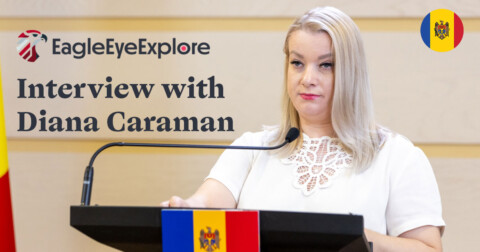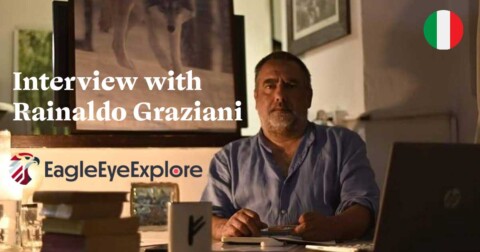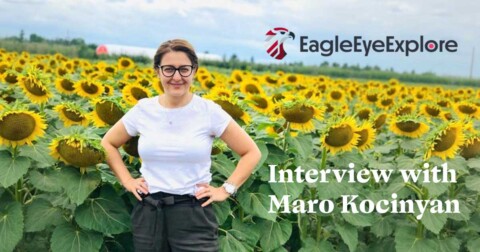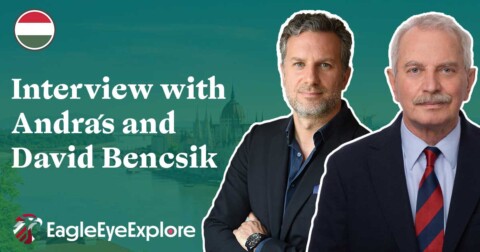Mariam Lashkhi is a prominent member of Georgia’s ruling Georgian Dream party and a rising voice in the country’s political landscape. Known for her firm stance on national sovereignty and democratic accountability, Lashkhi brings a background in international development and economic policy to her legislative work. She was recently appointed as Chair of the Parliament’s Education, Science and Youth Committee, where she now leads key initiatives aimed at strengthening Georgia’s education system, promoting innovation, and safeguarding youth from ideological and digital threats.
In this interview, Georgian Dream MP Mariam Lashkhi discusses Georgia’s recent decision to restructure the NATO and EU Information Center, clarifying that it’s a strategic realignment—not a shift in foreign policy. She also sheds light on Georgia’s resistance to external pressures to join global conflicts, the country’s efforts to maintain sovereignty in the face of foreign influence, and the motivations behind recent transparency laws targeting NGO activity. Lashkhi emphasizes Georgia’s commitment to Euro-Atlantic integration, national identity, and peace-first diplomacy amid a complex geopolitical environment
Recently, the government decided to close the Information Center on NATO and the EU. Some voices abroad have misunderstood this move. Could you clarify the reasoning behind the decision, and how it fits into Georgia’s strategic communications and national interest?
Yes, this is a very important decision, and thank you for highlighting it. I would describe this as a transformation—more precisely, an enclosure of the NATO and EU Information Center. This change represents a strategic reorganization of our government’s communication infrastructure.
Let me be clear: this is not a retreat from our Euro-Atlantic aspirations.
Going forward, the center’s functions will be handled by the European Integration Department within the Ministry of Foreign Affairs. This department has been strengthened, consolidated, and centralized to ensure more efficient coordination and to eliminate duplication of resources.
We must also be honest about what the center had become in recent years. Rather than providing objective information about NATO and EU integration, it gradually evolved into a platform for one-sided political advocacy, at times bypassing our democratic institutions.
While the center did serve certain purposes—for example, the U.S. Embassy awarded a $350,000 grant years ago to support its initiatives—Georgian taxpayers had no transparency or oversight regarding how such funds shaped national discourse.
This decision reflects a commitment to conduct foreign policy through proper governmental channels, rather than via externally funded information operations. Our constitutional commitment to Euro-Atlantic integration remains unchanged. However, we firmly believe that this process must respect Georgian sovereignty and the democratic process.
So just to be clear, this is not an anti-NATO shift or a pivot toward the East, as some have suggested, is it?
Yes, it’s not that at all—in fact, it’s a strengthening. This was a decision made by the Ministry of Foreign Affairs to reinforce and consolidate its internal structures. The idea was to establish a directorate, in line with European standards and best practices, ensuring a stronger institutional framework and more coordinated action.
Instead of relying on an external unit, which at times drifted away from its core mission and bypassed key government responsibilities, this move brings the process back under constitutional oversight. It reaffirms the government’s institutional role in leading our Euro-Atlantic integration efforts through official and accountable channels.
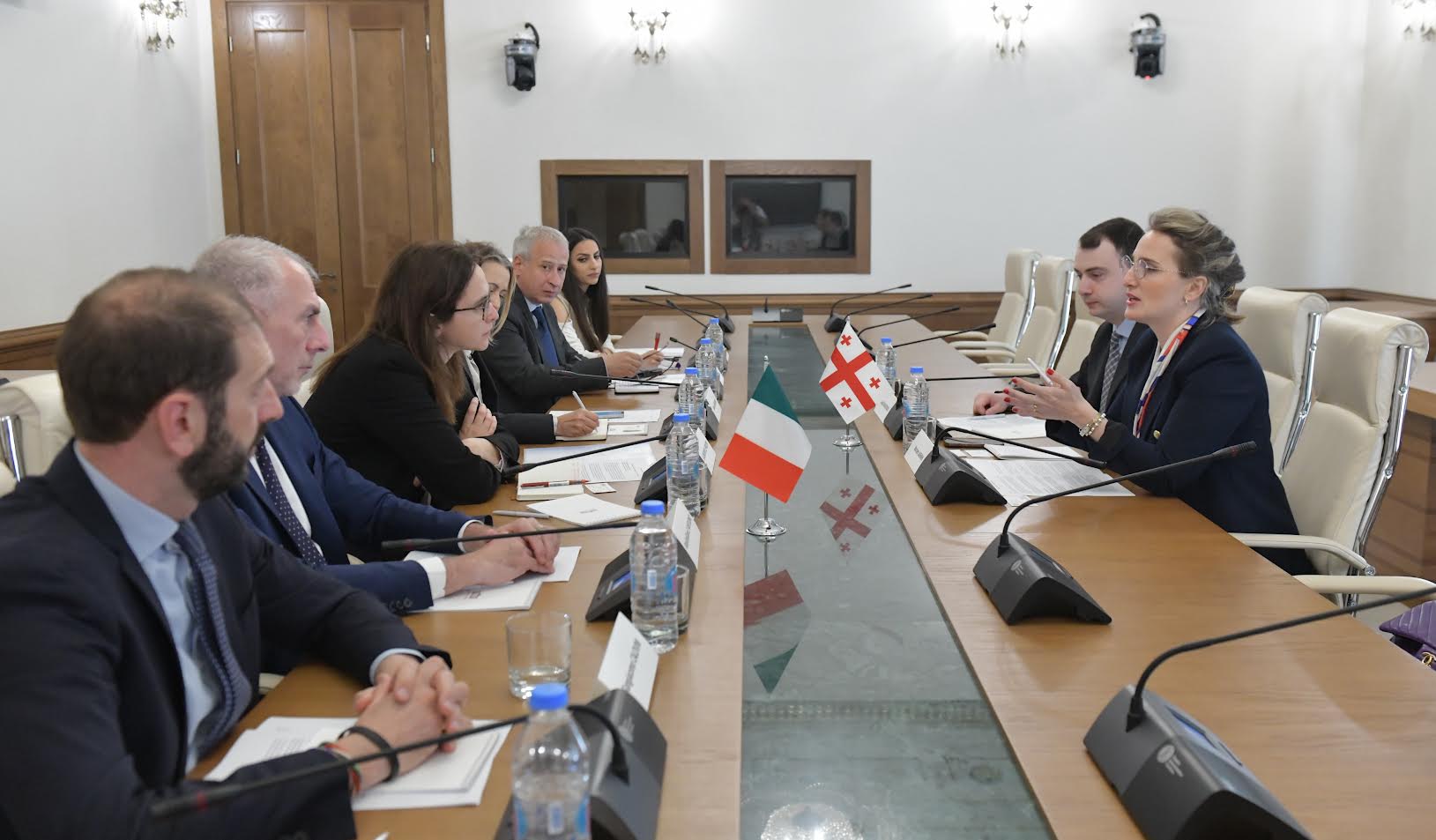
You’ve made compelling remarks about the so-called “global war party” and its efforts to entangle nations in conflict. These sentiments closely echo statements by Hungarian Prime Minister Viktor Orbán. Could you elaborate on what you meant by this, and how Georgia can protect its sovereignty against external ideological pressures?
When I referred to the “global war party,” I was speaking about international networks that prioritize conflict escalation over peaceful resolution—often at the expense of small nations like Georgia. This is not a conspiracy theory; we have concrete evidence and specific examples.
We’ve witnessed direct attempts to pressure Georgia into becoming a second front in the war against Russia. One such demand was to impose bilateral sanctions on Russia. But let’s be honest—Georgia’s contribution to the Russian economy is negligible, about 0.2%, meaning such sanctions would not meaningfully harm Russia. However, the reverse impact on Georgia would be significant: around 12% of our trade is with Russia, and sanctions would directly hurt Georgian entrepreneurs, enterprises, and ordinary people.
This demand was, in essence, a provocation, an attempt to involve us in a conflict we have consistently resisted. Despite intense pressure—notably from the U.S. Embassy and other actors—we refused to implement unilateral sanctions.
At the same time, it’s important to note that Georgia fully participates in multilateral sanctions frameworks. When opposition forces launched a two-month campaign accusing Georgia of sanction circumvention, high-level sanctions envoys from the UK, the U.S., and the EU came to Georgia and clearly stated there was not a single case of violation. In fact, they commended Georgia for exceeding expectations in complying with international sanctions—even beyond what is expected of many EU member states.
To provide context: most of our bilateral trade with Russia involves agricultural goods, which are not banned even for EU countries. For example, Latvia, which does not produce wine, became the top re-exporter of wine and spirits to the Russian market—trading 100 times more than Georgia. So clearly, Georgia was being selectively pressured, and not on objective grounds. The push for bilateral sanctions was less about effectiveness and more about dragging Georgia into the conflict.
Another example was the demand for Georgia to send volunteers to Ukraine via state-sponsored flights. While Georgian citizens who wished to volunteer did so independently, there were efforts to pressure our government to organize and send them officially—effectively signaling Georgia’s entry into the conflict and increasing the risk of Russian retaliation.
Early on, these discussions happened behind closed doors. But now, even on international platforms, there have been open references to Georgia becoming a site for partisan warfare. Some officials from the EU and the UK cited Georgia’s mountainous geography, history of military resilience, and “strong fighters” as assets for guerrilla-style resistance. But from our perspective, this was reckless. Georgia is a small country, and geographically vulnerable: for instance, the Russian-occupied region of South Ossetia is only 30 kilometers from our main highway. Russia wouldn’t need new troop deployments—just two days to block the highway and cripple critical infrastructure.
This kind of strategic logic—provoking Georgia to divert or weaken Russian resources—was shortsighted and dangerous. We repeatedly made it clear that we are not considering opening another front or inviting a conflict that would endanger our people.
There was also troubling rhetoric from high-level Ukrainian officials suggesting that now is the time to “visit Abkhazia”—an occupied region. Under Georgian law, traveling there via unauthorized routes acknowledges its de facto independence. Such statements don’t just violate our own legal framework—they risk provoking Russia into opening another front.
As our Prime Minister stated at CPAC: since the outbreak of the war in Ukraine, Georgia has faced enormous pressure to become a battlefield once again. But we safeguarded our sovereignty in several key ways:
- Strategic Autonomy: We insisted that decisions about Georgia’s national interest must be made in Georgia, by Georgians—not under external pressure.
- Transparent Governance: We introduced legal measures to ensure foreign funding does not bypass democratic institutions. There had been unprecedented flows of international funding through NGOs, with the intent of influencing political discourse outside legitimate government channels. Our transparency laws aimed to prevent that.
- Constitutional Clarity: Our aspirations toward EU and NATO membership are enshrined in our Constitution—but we will not sacrifice our sovereignty or dignity for accession. Membership must not come at the cost of our national integrity.
- Peace-First Policy: We are firmly committed to a peace-first approach. We refuse to be drawn into conflicts that would devastate our people and undermine our future.
So, when I speak about the “global war party,” I am not referring to an abstract concept or conspiracy. I am talking about real, documented efforts to compromise Georgia’s sovereignty and drag our country into a war. But we believe that true strength lies in independent decision-making—not in submissive compliance.
Just briefly—am I correct in assuming that, since President Trump took office, the pressure on your government has significantly diminished, perhaps even disappeared altogether? Or do you believe there are still entrenched ‘deep state’ actors exerting influence behind the scenes?”
Yes, absolutely—they’re still active. And we’re working to counter their influence through legislative reforms and by reinforcing democratic processes. One example is the introduction of the foreign agents law, which addresses the unusually high concentration of NGOs per capita—a key concern in terms of transparency and accountability.
There were about 25,000 NGOs operating in Georgia, and now that number has grown to around 30,000 or 31,000. This is staggering, especially for a country with a population of just 3.7 million. I doubt there’s any other country with such a high per capita concentration of NGOs. Even more striking is that around 90% of these organizations receive foreign funding—the numbers speak for themselves.
So when critics attack our transparency law, it highlights the hypocrisy of those who claim to support democratic accountability. We have the facts and figures, and it’s important to look at the actual purpose of the law.
Unlike the Russian legislation it’s often unfairly compared to, our law is based on democratic transparency principles. The “Russian law” label was deliberately used to stir public emotion—both in Georgia and abroad—simply because invoking the word “Russian” raises political temperatures. It’s a tactic used by an irresponsible opposition, which avoids substantive debate on real reforms and instead relies on emotional manipulation.
Our law is simple: any organization receiving over 20% of its funding from foreign sources must register in the Public Registry. This ensures Georgian citizens can see who is funding political messaging in their country. The law exposes a coordinated network of foreign-funded political advocacy groups that have long operated under the guise of civil society. These organizations have functioned as shadow political parties, evading election financing laws while using unlimited foreign resources to influence domestic politics.
We’re already seeing positive outcomes. Around 500 NGOs have registered, demonstrating a willingness to be transparent and continue their valuable work. Meanwhile, those who refused to register—and instead boycotted the process—have revealed their reluctance to be accountable to the public.
As a result, we now have: Greater public awareness of foreign funding sources, more accountability within the civil society sector, protection of genuine Georgian NGOs from foreign manipulation, and a stronger democratic foundation for our political process.
The law is working exactly as intended: bringing long-overdue transparency to a sector that operated in the shadows for years. And frankly, those who oppose transparency likely have something to hide—it’s that simple.

What will happen to the NGOs that are boycotting this initiative and refusing to comply with the transparency law? Will they face closure, or some other consequence? How do you envision ensuring the success of this effort?
The current law does not impose sanctions on NGOs that choose to boycott the transparency initiative. However, the law has already had a significant impact—the public can now see clearly which organizations fall within the foreign influence sector, and that awareness alone creates a form of democratic accountability.
In parallel, we’ve also introduced amendments to the Law on Grants. Now, international organizations funding civil society initiatives must receive government approval, with some exceptions—for instance, programs tied to education, Horizon Europe, Creative Europe, and similar initiatives that pose less risk of influencing domestic politics.
If foreign organizations continue to engage in shadow financing of political activity, we will take appropriate steps to demand transparency and responsibility. These actions are designed not only to bring foreign actors into compliance, but also to ensure that NGOs remain accountable to the Georgian public.
It’s important to understand that threats to Georgia’s internal affairs don’t just come from Western sources such as NED or EED. We live in a highly complex and sensitive geopolitical neighborhood. For example, Russia has consistently opposed Georgia’s energy independence—including our efforts to expand hydropower. We had a case where an NGO, presenting itself as an environmental advocate, actively opposed a major hydropower project. They succeeded in pushing out a foreign investor, leading to heavy financial penalties for the government. Upon further investigation, we discovered links between that NGO and Russian interests. These are real threats that must be exposed.
We also face challenges from Iran, and the growing risk of radical Islamist influence—often spread through NGOs operating under the guise of educational or cultural missions.
Unfortunately, some European bureaucrats overlook these regional dynamics. They try to apply a copy-paste model of civil society oversight based on conditions in Western Europe—where the security environment is fundamentally different. Applying those same frameworks to Georgia without adaptation is not only ineffective but dangerous, especially considering Black Sea security and our unique vulnerabilities.
Despite immense pressure from Western actors, the Georgian government remains committed to safeguarding the interests of our people. Through legal reforms and stronger oversight, we are working to prevent democratic processes from being bypassed by foreign influence. That’s our duty—and we’ll continue to uphold it.
Do you have any insight into the breakdown of NGOs currently operating in Georgia? Specifically, what percentage are funded or affiliated with Western sources, and how many are linked to Russian or Iranian influence, as you suggested?
Yes, to be honest, it’s very difficult to precisely quantify the influence of different foreign actors among NGOs operating in Georgia. These affiliations are not always visible or openly declared. It’s not like Moldova, for instance, where the political landscape is more clearly divided—there, you have official pro-Russian parties and even referendums that reflect a roughly 50/50 split between pro-European and pro-Russian sentiment.
In Georgia, the situation is different. We do not have any official pro-Russian political parties, nor are there NGOs that openly identify as pro-Russian. This is largely because 20% of our territory is occupied by Russia. We have lived with that reality for decades, and we did not need the 2022 war in Ukraine to realize it.
Sometimes, we hear Ukrainians reminding us that Russia is an occupier—but we’ve known that for a long time. We experienced it firsthand in 2008, when Russia invaded Georgia. At that time, we raised our voice and stood up for our sovereignty, even as the West was still pursuing a policy of “reset” with Russia. While we were under threat, the international response was limited to expressions of “deep concern.”
So, yes, we chose a pragmatic approach based on experience, but it was deeply frustrating to see, in the years following our war, many European countries—including Ukraine—participating in Victory Day marches on Red Square, their flags waving in the streets of Moscow. After all that, being lectured on how to act toward Russia, and how “vocal” we should be, feels diplomatically unfair and historically insensitive.
Even today, many European institutions and communicationsavoid calling Abkhazia and South Ossetia “occupied territories.” Instead, they continue to use the term “breakaway regions,” which does not accurately reflect the reality of Russian military presence and control.
To be continued…

